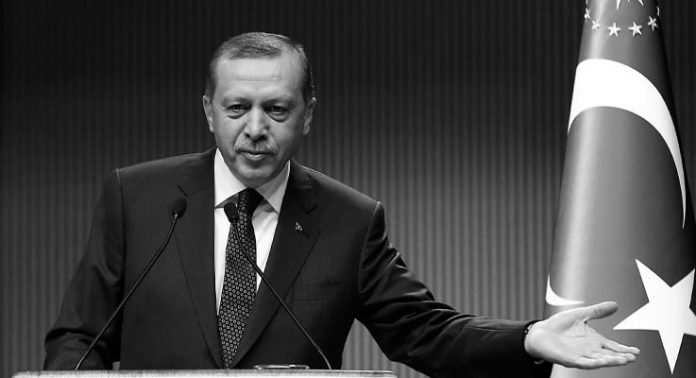Etyen Mahçupyan
The Turkish original of this article was published as Başkanlık sisteminin yumuşak karnı on 27th December 2015.
Tutelage is generally understood as the ideological and administrative encroachment of the military and the judiciary on civilian politics. Since the AKP came to power, Turkey has largely alleviated a lot of this hegemony by making a number of institutions more pluralistic within themselves as well as by getting rid of the “moral hierarchy” hanging over executive decision-making. At the same time, given the extent to which an institutionalized bureaucracy and its mental outlook have become virtually the primary element of the entire state tradition, not enough pressure could be brought to bear on the power they keep wielding against civilian politics. For here it is a matter of a realm of power and influence based on custom and tradition, force of habit, and pecuniary backstage relations. This civilian bureaucracy’s tutelage power stems not from what it does, but from what it purposefully does not do.
Hence it is totally understandable for a leader like Erdoğan, and a government motivated by a motto of service maximization, to want to establish a presidential system capable of breaking down this pro-tutelage resistance. The idea is that the government would thereby be able to penetrate the bureaucracy all the way down to its capillaries, thereby appropriating its monopoly of information, and putting an end to the use of that information for bargaining purposes. If we define politics simply as winning elections and obtaining a majority in parliament, we may not understand why Turkey cannot be governed. A few simple examples, however, may help remind us just how much more complicated the problem is. For example, how many of the reports on Hrant Dink’s murder submitted to the government up till now have presented the complete truth and included all the information available to their writers? Or has the government been able to reach full information about what actually happened during the Gezi events or at Uludere? The point is that, in order to answer these questions in the affirmative, one has to be able to access information through objective channels, whereas the “information” available to civilian politics on any subject cannot go much beyond what it is presented with as “information” by the bureaucracy. To put it yet more simply, it is probably unclear how civilian politicians might start looking for a critical piece of information in the archives without that bureaucracy.
Regardless of how many elections you might have won and what sort of majority you might have achieved in parliament, governing Turkey requires you to be strong in yet another area. You have to be able to break the bureaucracy’s information monopoly and also impose a legislation that will ensure the transparency of following up on all decision-making processes, so that all decisions adopted by the government can be “exactly” implemented, i.e. in conformity with their essence. This cannot be achieved just by changing ministerial undersecretaries and their assistants. You have to go further down the ladder and also set up a bureaucratic network for coordination between various government institutions.
The workings of a presidential system are quite suitable for this. That is also why Erdoğan wants this transition — on the grounds that service provision can be accelerated without being hindered by ideological or interest-based relations. But a presidential system does not only enhance the executive’s efficiency. It is also conducive to rendering the executive much more powerful, more capable of taking the initiative, bolder, faster — and more uncontrolled than a parliamentary system. Even if you allow for post hoc control and supervision, many decisions that will already have been taken might result in public damage that cannot be restored afterwards.
It appears that right now, at least a fourth of the AKP electorate is sensitive about this. It is, in other words, impossible to push a presidential system through without persuading this group. But at the same time, there are examples of presidential systems which embody such controls, and even if there weren’t any, it would not be hard to create them. If the AKP does not go in that direction but continues to hold obstinately to the single argument of increasing executive “efficiency,” it will end up shelving the presidential system option with its own hands.


